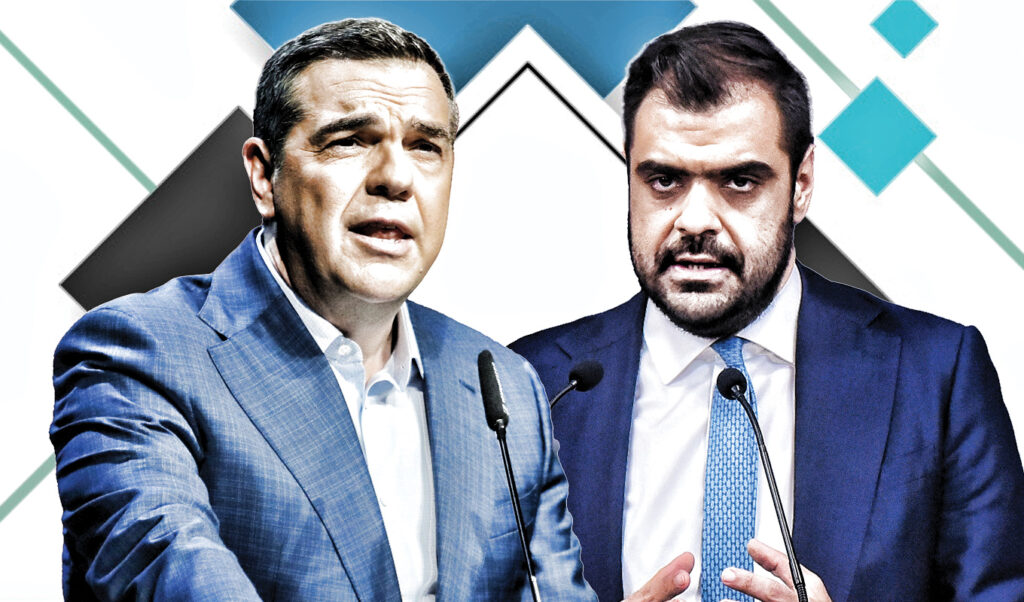Government spokesperson Pavlos Marinakis launched sharp criticism against SYRIZA and former prime minister Alexis Tsipras, speaking on SKAI TV.
“The truth is not toxic. The truth is the truth. What’s toxic is the characterization, toxic is saying ‘either us or them,’ ‘we finish them or they finish us,’ ‘I’ll bury you three meters underground,’ like Mr. Famellos who you’ll have in the studio, who as president of the party that came second in the elections, because the opposition had lost then, went to Parliament and said the prime minister was connected to the death of a young person,” the government spokesperson said initially, noting that elections will be held normally in 2027 without changing the electoral law.
Mr. Marinakis questioned, referring to Mr. Tsipras, that under his government approximately 17,000 convicted felons were released from prison in about five years.
Pavlos Marinakis: criticism of Alexis Tsipras
“Let me give you an example: What did SYRIZA do? And for me this is a heavy political discussion, because it was decided by MPs who voted and by a government. They said: without exceptions, meaning without excluding the drug dealer, without excluding the murderer, without excluding the rapist, the child molester, if for example you got a 25-year prison sentence you’ll be out at 1/3. That is, all those who shock the entire nation, during Mr. Tsipras’ years, the socially sensitive one, were getting out perhaps in six to seven years,” Mr. Marinakis noted.
When asked if the government “fears Mr. Tsipras,” he replied that “in politics you shouldn’t either dismiss anyone, saying ‘come on, this guy is finished,’ nor overestimate anyone, because at the end of the day the only one who makes the ‘accounting’ is the Greek people. They judge us all. And we are very temporary in politics. Yet we are given an opportunity with Mr. Tsipras’ comeback and rebranding to have, in my view, a very deep political and substantial discussion for the people, which has to do with the wallet, as we say, and where we want to go and where we are today.”
He added that “no one became richer under Tsipras, not the poor, not the middle class, not the rich. Nobody. Everyone became poorer and much more so the middle class” and emphasized that “it was complete impoverishment and mainly of the middle class because he imposed or increased thirty taxes. In contrast to Tsipras, the current prime minister, Kyriakos Mitsotakis, has reduced or abolished 72 taxes. Five indicative data points which are objective, to go to what comes next and for me what is our difference from these political spaces. First, jobs. 500,000 people found work under Mitsotakis. We have the lowest unemployment of the last 17 years. Even before the memoranda. The greatest social exclusion is not having a job. I tell you analytically: 3,900,000 workers under Tsipras, 4,400,000 already under Mitsotakis.”
“Second, what do they tell us? ‘Yes, but you impoverished the people.’ How many earned below 1,000 euros under Tsipras? 64% of workers, roughly 2 out of 3. 67% is 2 out of 3. 64%. This percentage, 64%, how much has it become now? 46%. It’s not little, but from 64% below 1,000 euros, now it has gone to 46%. How much is the minimum wage now? 880. How much was it then? 650. Someone will rightly tell me: ‘yes, but we also have terrible inflation.’ And we do. What have we achieved, however, with this terrible inflation, which people are right to complain about? The increases in average wages are somewhat higher than price increases,” he added.
“We want everyone to become richer”
The government spokesperson noted that in Greece the average wage based on official data has risen 30% and prices “in Europe 22% and in Greece 17%.”
“For me, however, the major point and this is what I want to say and this is what the prime minister will also say at the next Thessaloniki International Fair is how you achieve income increases. We don’t want to take money from you, the middle class, and give it to the poorest, we want everyone to become richer. That is, to raise the income of both the poorest and the middle class, gradually and obviously with emphasis,” the government spokesperson emphasized.
He added that there are no “money trees” and stressed that “it’s good for a state not to produce deficits, thus debts for future generations,” while repeating that the electoral law will not change and elections will be held normally in 2027, concluding by accusing the opposition of toxicity.
“Elections will be held in 2027. We will respond to the opposition’s lies. Toxic are those who throw mud, slander and insult. They shouldn’t be bothered by the truth. And the basic thing we will do is look at citizens and their needs,” he concluded.




